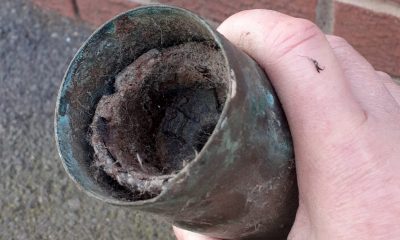Gold could hold key to treating this disease
Researchers in China found that tiny gold particles can reduce inflammation in the intestine.
Stories and infographics by ‘Talker Research’ are available to download & ready to use. Stories and videos by ‘Talker News’ are managed by SWNS. To license content for editorial or commercial use and to see the full scope of SWNS content, please email [email protected] or submit an inquiry via our contact form.

 Parenting2 days ago
Parenting2 days agoSingle mom details struggles of feeding her 12 kids

 Broadcast4 days ago
Broadcast4 days agoOver 40% of Americans have no clue what a 401k is

 Broadcast3 days ago
Broadcast3 days agoHow hard is it for Americans to live sustainably?

 Broadcast1 week ago
Broadcast1 week agoGrocery shopping hungry is costing Americans this much

 Funny1 week ago
Funny1 week agoCops confused by crow mimicking police siren

 Shopping1 week ago
Shopping1 week agoGrocery shopping hungry costs Americans this much every trip

 Money4 days ago
Money4 days agoOver 40% of Americans have no clue what a 401k is

 Parenting1 week ago
Parenting1 week agoIt takes this many minutes for the average American kid to get bored











